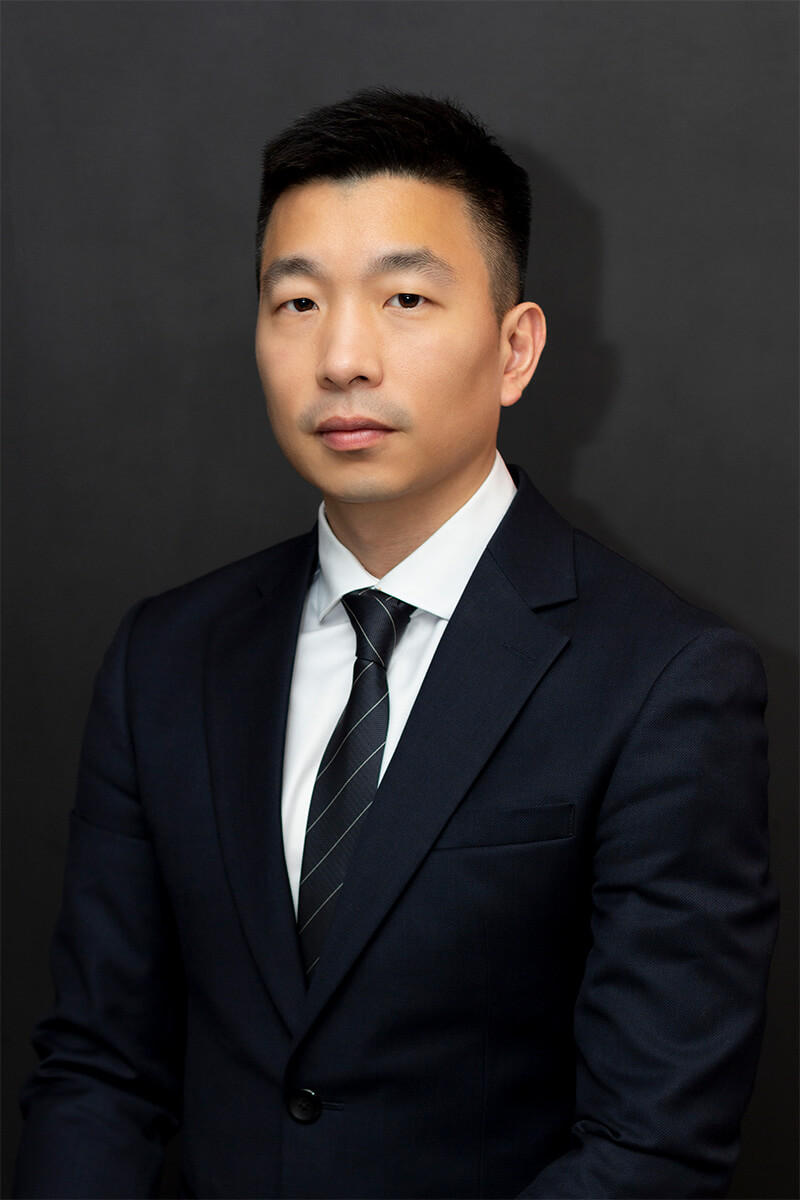Hong Kong company law
Covering an area of 1,096 square kilometres and with a population of just under 7 million, Hong Kong has the reputation of being one of the world’s leading commercial and financial centres. From the outset, Hong Kong has enjoyed being a trade hub, courtesy of its world class harbour strategically located on the main Far East trade routes. Subsequent historical and political events then led to the development of the manufacturing industry. Hong Kong has also seen a rapid expansion of its services sector in the past two decades, which now contributes to over 80% of Hong Kong’s GDP.
HKSAR (the Hong Kong Special Administrative Region) of the PRC was established on 1st July 1997. Under the principle of “one country, two systems”, Hong Kong’s previous capitalist system and lifestyle continue to be practised in the HKSAR, and by law, will continue to do so for 50 years. Hong Kong enjoys a high degree of autonomy, except in certain sectors, such as defence and foreign affairs.
The Basic Law is a constitutional document that enshrines the basic policies of the PRC regarding Hong Kong and prescribes the various systems to be adhered to in the HKSAR. It details the relationship between the Central People’s Government (the governing body of the PRC) and the HKSAR Government; the fundamental rights and duties of Hong Kong residents; the political structure of the HKSAR; the economic, financial and social systems of the HKSAR; the conduct of external affairs by the HKSAR; and the interpretation and amendment of the Basic Law.
The Government is headed by the Chief Executive, who, according to law, is to be selected by election or through local consultation, and appointed by the Central People’s Government. The first Chief Executive, Tung Chee-hwa, was recommended by a Selection Committee comprising 400 members from various sectors of the community. The Executive Council assists the Chief Executive in making important policy decisions and all subsidiary legislation under the relevant ordinances. There is a three-tier system of representative government:
- at the central level is the Legislative Council, which legislates, approves taxation and public expenditure and raises questions on the framework of the Government. The Legislative Council, appointed through election, comprises 60 members – 30 from functional constituencies, 20 from geographical constituencies and 10 elected by a selection committee. The first such election was held in May 1998, with a voting turn out rate of just over 53%
- at the regional level, municipal services are provided by the Food and Environmental Hygiene Department and the Leisure and Cultural Services Department
- at the district level, 18 Provisional District Councils offer advice on the implementation of policies in their districts and provide a forum for public consultation
In July 2002, Tung Chee-kwa was re-appointed as Chief Executive for another five years and a new accountability system for Principal Officials was implemented at the same time. Under the system, the upper echelon of the Government – the Chief Secretary for Administration, Financial Secretary, Secretary for Justice and all Director of Bureau – are no longer civil servants, but are appointed on contract term as Principal Officials. They may serve for a terms of five years, but not exceeding that of the Chief Executive who nominates them. They cover the respective portfolios assigned to them by the Chief Executive, oversee the work of associated departments, formulate policies, explain policy decisions, market policy proposals and gain the support of the legislative Council and the public. They are accountable to the Chief Executive for the success or failure of their policy initiatives. Under the leadership of the Chief Executive, they are accountable to the community. Where necessary, the Chief Executive may terminate their contracts.
Laws in Hong Kong comprise the Basic Law, locally enacted ordinances, subsidiary legislation, the common law, rules of equity and customary law. A few national laws of the PRC are also applicable, covering subjects such as the national flag and anthem, nationality law and diplomatic privileges and immunity (listed in Annex III of the Basic Law). The courts comprise the Court of Final Appeal, the High Court (being the Court of Appeal and the Court of First Instance), the District Court (including the Family Court), Lands Tribunal, Magistrates’ Courts, Juvenile Court, Labour Tribunal, Small Claims Tribunal, Obscene Articles Tribunal and Coroner’s Court.
The tax system is relatively simple compared to some developed countries – under the territorial source concept, only income arising in or derived from Hong Kong is chargeable to tax. Profits from any trade, business or profession carried on in Hong Kong are chargeable to profits tax at 16% for corporations and 15% for other businesses. Income from employment is charged with salaries tax which is calculated on a sliding scale after deducting various allowances. However, it is limited to 15% on the gross income before deduction of allowances. Property tax is charged on the owner of any land and/or buildings in Hong Kong at the standard rate of 15% on the annual rent receivable less a statutory deductions of 20% for repairs and outgoings.
FINANCIAL SERVICES
The Financial Markets
Hong Kong is a major international financial centre comprising an integrated network of institutions and markets that provide a wide range of products and services to local and international customers and investors. The markets are characterised by a high degree of liquidity and operate under effective and transparent regulations set to international standards. The Government attempts to keep intervention in the way in which the market operates to a minimum in order to provide a favourable environment for investment. Its policy of low and simple taxation allows maximum room for business initiatives and innovation. There is a strong emphasis on the rule of law and the operation of a fair market. There are no barriers of access to the market by foreign businesses and no restrictions on capital flows in and out of Hong Kong. There are also no exchange controls.
Hong Kong has a very strong presence of international financial institutions. At the end of 2001, there were 133 foreign-owned banks. Of the world’s top 100 banks, 76 have operations in Hong Kong, while 86 subsidiaries or related companies of foreign banks operate as restricted licence banks and deposit-taking companies. A further 111 foreign banks have local representative offices. These banks operate a wide range of retail and wholesale banking business such as deposits, trade financing, corporate finance, treasury activities, and securities and precious metal broking and trading. Around 60% of the banking business is conducted in foreign currency, and its banking market is regarded as one of the most open, fair and transparent in Asia. Due to the absence of exchange controls and its favourable time zone location, it has developed into a mature and active forex market. Links with overseas centres enable foreign exchange dealing to continue 24 hours a day around the world. In turns of volume of external transactions, Hong Kong is the 9th largest international banking centre, and has one of the largest representation of international banks in the world.
The Hong Kong money market consists primarily of the interbank market. The money market is mostly utilised by institutions at the wholesale level. The Hong Kong Interbank Offer Rate (“HIBOR”) is determined by the supply and demand for funds between market players and therefore is one of the most important indicators of the price of short-term funds in Hong Kong. The daily turnover in the Hong Kong interbank market averaged HK$206.1 billion in 2001.
Hong Kong also has mature and active foreign exchange market, which forms an integral part of the global market. The daily average foreign exchange turnover in Hong Kong in April 2001 to be US$66.8 billion, which represents 4 per cent of the world’s total transactions and makes Hong Kong the world’s seventh largest foreign exchange market.
With a total market capitalization of 3,885 billion as at end 2001, the Hong Kong stock exchange ranked 10th in the world and third in Asia, following Japan and the Mainland (Shanghai and Shenzhen). The daily turnover in the local stock market averaged $8 billion in 2001. At the end of the year, 756 public companies were listed on the Stock Exchange of Hong Kong Limited (SEHK), a wholly-owned subsidiary of the Hong Kong Exchanges and Clearing Limited (HKEx). The 88 (including 57 on the Growth Enterprises Market) newly-listed companies raised a total of $27 billion of capital. Besides new share issues, funds were also raised in the secondary market with a total amount of $38.7 billion. Funds raised in H-shares and red-chips markets amounted $25.9 billion, some 40 percent of the total funds raised in the Hong Kong market during the year.
Hong Kong’s derivatives market is among Asia’s largest, reflecting the increased sophistication of is financial markets. The over-the counter derivatives contract (including foreign exchange and interest rate derivatives) registered an average daily turnover of US$4.2 billion in April 2001, compared with US $3.8 billion in April 1998. As regards stock options contracts, a total of 31 stocks were traded in the market by the end of the year. The average daily turnover of stock options contracts was 16 465 in 2001.
The average daily turnover of Hang Sang Index Futures traded on the Hong Kong Futures Exchange (HKFE) increased from 16 288 contracts in 2000 to 18 220 contracts in 2001, representing an increase of 12 percent. The turnover of Hang Sang Index Option also increased to 2 965 contracts a day in 2001. Compared with 2 203 in 2000, representing an increase of 35 percent. Besides Index futures and options, the HKFE also traded in four currency futures and 30 stock futures contracts.
The Hong Kong fund industry is characterised by its strong international flavour, both in terms of the presence of global fund managers and authorised funds. In the survey conducted by the Securities and Futures Commission in 2001, 203 intermediaries registered with the commission and exempt persons declared their primary business as fund management – managing portfolios and/or giving advice on investment. The total assets under management by the portfolio managers amounted to $1,485 billion (US $190.4 billion) at the end of 2001.
The number of authorised unit trusts and mutual funds increased to 1,893 at the end of 2001 (excluding Mandatory Provident Fund-related unit trusts), compared to 1,791 at the end of 2000. The Track Fund of Hong Kong (TraHK), which was offered in October 1999 and contains a portfolio of Hang Seng constituent stocks, was well received by the market. The market capitalisation of TraHK amounted to $24.1 billion by the end of 2001.
Regulation of the Financial Markets
In line with the international trend, Hong Kong’s financial service regulatory system has evolved and developed over the years. The principal regulators of banking and securities & future are the Hong Kong Monetary Authority (the “HKMA”) and the Securities and Futures Commission (the “SFC”).
The HKMA was established in April 1993 in order to ensure that the central banking functions of maintaining monetary and banking stability could be performed efficiently. One of the main policy objectives of the HKMA is to promote the safety and stability of the banking system through the regulation of banking business. The HKMA’s approach in supervising financial institutions is one of “continuous supervision” – a wide variety of techniques are used with the aim of detecting problems at an early stage and ensuring that banks have adequate internal control systems in place to manage risk. In such supervision, the HKMA follows international practices as recommended by the Basle Committee on Banking Supervision, including the capital adequacy framework and Core Principles for Effective Banking Supervision.
Besides banking supervision, other functions and objectives of the HKMA include the maintenance of currency stability, and promotion of the efficiency, integrity and development of the financial system. These functions and objectives are consistent with those of central banks throughout the world. The SFC was established in May 1989 as an autonomous statutory body, outside the Government, charged with the regulation of the securities, futures and financial investment industries. It is responsible for ensuring compliance with the various pieces of legislation covering these areas. Within the regulatory framework, the SFC has regulatory oversight of the Stock Exchange of Hong Kong, the Hong Kong Futures Exchange and three recognised clearing houses. The two exchanges also act as the frontline regulators of their respective markets and members.
In relation to banking, Hong Kong maintains a three-tier system of deposit taking institutions:
- licensed banks
- restricted license banks
- deposit-taking companies
Under the Banking Ordinance, these are collectively referred to as “authorised institutions” (“AI’s”) and operate within Hong Kong as either locally incorporated companies or branches of foreign banks. Only licensed banks may operate current accounts and accept deposits of any size and maturity. Restricted licence banks are principally engaged in merchant banking and capital market activities and may take deposits of any maturity of HK$500,000 and above. Deposit-taking companies are mostly owned by or otherwise associated with, licensed banks, and engage in a range of activities including consumer finance and securities business. Such companies are restricted to taking deposits of HK$100,000 or more with an original term to maturity of at least three months. The three-tier system allows banking institutions, which do not qualify for a full banking licence, to apply instead for a restricted banking licence or a deposit-taking company licence. The rationale behind the authorisation criteria is that only fit and proper institutions be entrusted with public deposits. Such criteria are reviewed on an annual basis to ensure that they reflect the changing needs of the regulatory environment and continue to meet international standards.
The AI’s also have to comply with the provisions of the Banking Ordinance with require them to: maintain adequate liquidity and capital adequacy ratios; to submit periodic returns to the HKMA on required financial information; to adhere to limitations on loans to any one customer or to directors and employees; and to seek approval for the appointment of directors, senior management, and changes in control. Overseas banks, which operate in branch form, are not required to hold capital in Hong Kong and are therefore not subject to capital ratio requirements or to capital-based limits in large exposures. The aim of the banking legislation is to maintain a prudent supervisory system to preserve the general stability and effective operation of the banking system, whilst at the same time giving AI’s the flexibility to take commercial decisions.
As far as the money market is concerned, Hong Kong has a sizeable and active interbank market where wholesale Hong Kong dollar funds are transacted among banking institutions. The Hong Kong interbank bid and offer rates are important indicators of the liquidity situation in the financial system and are central to the pricing of Hong Kong dollar credits. Interbank funds have always been a major source of funding for the banking system, particularly for those banks (mostly foreign incorporated institutions) not operating extensive retail networks. At the same time, the interbank market is also the venue for those banks with a large customer deposit base to invest in short term loans. At present, interbank funds account for about one-quarter of the total Hong Kong dollar liabilities of all banking institutions, which is a high proportion by international standards, reflecting the interbank market’s key role in the process of financial intermediation in Hong Kong.
The monetary policy objective is currency stability in terms of the external value of the Hong Kong dollar, i.e. the maintenance of the exchange rate stability – this has special importance for Hong Kong, both in terms of the nature of the businesses carried out in the territory and in terms of general confidence. Hong Kong has operated the linked exchange rate system since 1983, which is a currency board system. The monetary base (which includes banknotes and coins issued, the aggregate balance of the clearing accounts of licensed banks maintained with the HKMA and all outstanding Exchange Fund Bills and Notes) is fully backed by the foreign reserves. When the three note-issuing banks in Hong Kong issue bank notes, they are required to submit US dollars, at an exchange rate of HK$7.80 to each US$, to the HKMA for the account of the Exchange Fund in return for Certificates of Indebtedness. The Hong Kong dollar banknotes are therefore fully backed by US$ held by the Exchange Fund.
Financial Links between Hong Kong and the Mainland
Hong Kong provides Mainland entities with an efficient access to international capital through its banking, equity and debt markets. Hong Kong’s banks have maintained a strong presence in the Mainland. The financial links between Hong Kong and the Mainland would be further strengthened with China’s accession to the World Trade Organisation (WTO), which would generate increasing demand for a wide range of financial support services for increasing trade and investment flows between the Mainland and the rest of the world.
Cross-boundary fund flows among financial institutions have grown in the last two decades. Over the years, the Mainland has accumulated a substantial amount of funds in Hong Kong dollars from trading activities and inward investment. These funds are placed with financial institutions in the Mainland and are subsequently channelled back to Hong Kong through the inter-bank market.
Since 1980, external liabilities of authorised institutions in Hong Kong to financial institutions in the Mainland have grown at an average rate of 31 per cent per annum to $272.1 billion by the end of November 2001. Over the same period, claims on financial institutions in the Mainland by authorised institutions in Hong Kong registered an annual growth of about 16 per cent to $169.7 billion.
Many banks from Hong Kong have established a strong presence among businesses in the Mainland. A total of 18 locally incorporated banks have established 40 branches and 32 representative offices there by the end of 2001. Hong Kong’s banks, with their long-established financial links with the Mainland and their well-developed global financial expertise, should be able to expand further their scope of business in the Mainland as well as to help Mainland entities to reach out following China’s accession to the WTO.
Portfolio investment in the form of ‘China funds’ is also popular. By the end of 2001, 37 China or Greater China funds had been authorised by the SFC and they invested in H-shares, red-chips, B-shares listed on the Shanghai and Shenzhen stock exchanges, the Taiwan stock exchange, or other China related securities.
At present, Hong Kong is the most important capital formation centre for Mainland enterprises. At the end of the year, 58 Mainland-incorporated enterprises had been listed on the SEHK through the issuance of H-shares, raising a total of more than $128.8 billion. Of this, $6.6 billion was raised in 2001.
In addition, as part of their restructuring for listing, some Mainland state-owned enterprises have reincorporated in Hong Kong and listed as red-chips on the SEHK. As at end-2001, 69 red-chips were listed, raising $18.3 billion directly and indirectly through Hong Kong.
OCTOBER 2002
This note is intended for information purposes only. Specific advice should be sought in relation to any particular situation.





